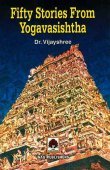Pavan, Pāvan, Pavaṉ, Pāvaṉ: 7 definitions
Introduction:
Pavan means something in Hinduism, Sanskrit, the history of ancient India, Hindi, Tamil. If you want to know the exact meaning, history, etymology or English translation of this term then check out the descriptions on this page. Add your comment or reference to a book if you want to contribute to this summary article.
India history and geography
Source: Institut Français de Pondichéry: The Shaivite legends of KanchipuramPavaṉ (பவன்) (in Tamil) refers to Bhava in Sanskrit, and represents one of the proper nouns mentioned in the Kanchipuranam, which narrates the Shaivite Legends of Kanchipuram—an ancient and sacred district in Tamil Nadu (India). The Kanchipuranam (mentioning Pavaṉ) reminds us that Kanchipuram represents an important seat of Hinduism where Vaishnavism and Shaivism have co-existed since ancient times.

The history of India traces the identification of countries, villages, towns and other regions of India, as well as mythology, zoology, royal dynasties, rulers, tribes, local festivities and traditions and regional languages. Ancient India enjoyed religious freedom and encourages the path of Dharma, a concept common to Buddhism, Hinduism, and Jainism.
Languages of India and abroad
Sanskrit dictionary
Source: Cologne Digital Sanskrit Dictionaries: Cappeller Sanskrit-English DictionaryPāvan (पावन्).—[adjective] drinking or protecting.
Source: Cologne Digital Sanskrit Dictionaries: Monier-Williams Sanskrit-English Dictionary1) Pāvan (पावन्):—[from pā] 1. pāvan mfn. drinking (only ifc.; cf. asṛk-, gharma-, ghṛtaetc.)
2) [from pā] 2. pāvan mfn. protecting (only ifc.; cf. abhiśasti-, tanū-).
3) a 1. 2. pāvan. See under √1. 3. pā.
[Sanskrit to German]
Sanskrit, also spelled संस्कृतम् (saṃskṛtam), is an ancient language of India commonly seen as the grandmother of the Indo-European language family (even English!). Closely allied with Prakrit and Pali, Sanskrit is more exhaustive in both grammar and terms and has the most extensive collection of literature in the world, greatly surpassing its sister-languages Greek and Latin.
Hindi dictionary
Source: DDSA: A practical Hindi-English dictionary1) Pavan in Hindi refers in English to:—(nm) air, breeze; wind; —[cakki] a wind-mill; —[samghata] a jet blast of wind..—pavan (पवन) is alternatively transliterated as Pavana.
2) Pavan in Hindi refers in English to:—(a) holy, sacred; immaculate; pure; a suffix denoting one who or that which purifies (as [patitapavana]); ~[ta] holiness, sanctity; immaculation; purification, purity..—pavan (पावन) is alternatively transliterated as Pāvana.
...
Kannada-English dictionary
Source: Alar: Kannada-English corpusPavaṇ (ಪವಣ್):—[noun] = ಪವಣು [pavanu].
Kannada is a Dravidian language (as opposed to the Indo-European language family) mainly spoken in the southwestern region of India.
See also (Relevant definitions)
Starts with (+102): Pavamca, Pavamca, Pavamcana, Pavamcha, Pavamcia, Pavamga, Pavamgama, Pavamta, Pavana, Pavanabhakshana, Pavanabhaya, Pavanabhu, Pavanabhuj, Pavanacakkaram, Pavanacakki, Pavanacakra, Pavanacan, Pavanacandra, Pavanacaritra, Pavanachakra.
Ends with (+20): Abhishastipavan, Apavan, Asrikpavan, Bahurupavat, Campavan, Caravanapavan, Ceypavan, Cittapavan, Curumpavan, Dantapushpavan, Dipavat, Divyarupavat, Enpavan, Gharmapavan, Ghritapavan, Jihvapavan, Kalapavan, Khshathrapavan, Kripavan, Krupavan.
Full-text (+38): Abhishastipavan, Ghritapavan, Somapavan, Punarppavan, Abhishastipa, Puruvaparkunipavan, Pavana, Sutapavan, Asrikpavan, Vasapavan, Gharmapavan, Tanupavan, Jihvapavan, Koluntukilli, Cevalal, Kalotikaiyoti, Tummattippattan, Kariyatarici, Virakempiran, Pitunkiunni.
Relevant text
Search found 6 books and stories containing Pavan, Pāvan, Pavaṉ, Pāvaṉ, Pavaṇ, Paavan; (plurals include: Pavans, Pāvans, Pavaṉs, Pāvaṉs, Pavaṇs, Paavans). You can also click to the full overview containing English textual excerpts. Below are direct links for the most relevant articles:
Rig Veda (translation and commentary) (by H. H. Wilson)
A Manual of Khshnoom (by Phiroz Nasarvanji Tavaria)
Chapter II < [Part II]
Symbolism in Hindi Drama – II < [October 1952]
Folk Tales of Gujarat (and Jhaverchand Meghani) (by Vandana P. Soni)
Shri Gaudiya Kanthahara (by Srila Bhaktisiddhanta Sarasvati)
Related products
